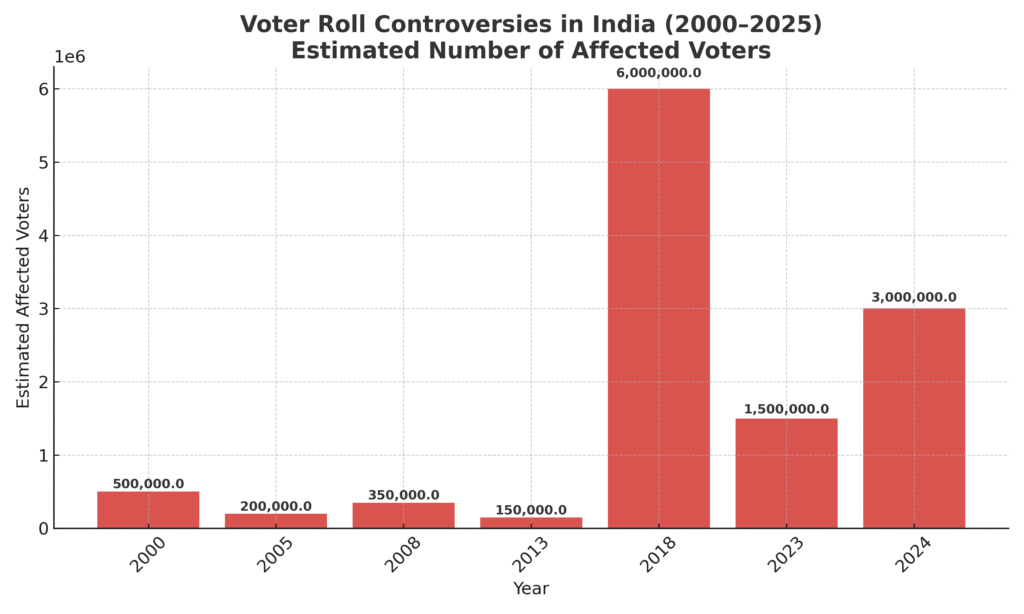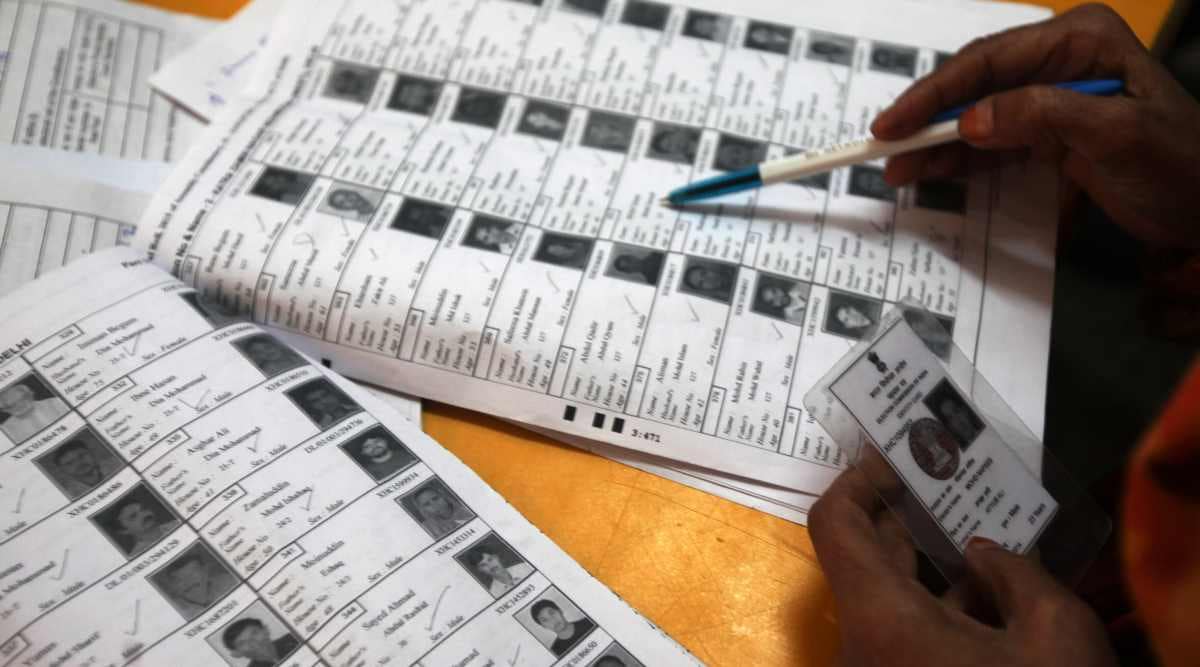From duplicate IDs to mass deletions, recurring electoral roll disputes raise fears of eroding public trust in the world’s largest democracy.
New Delhi, August 9, 2025 – Allegations of fake voters, duplicate entries, and wrongful deletions have once again thrown India’s electoral credibility into question. What may seem like a recent political flashpoint is, in fact, a two-decade-old problem that has returned almost every election cycle — often with millions of names at stake.
A Recurring Pattern Since 2000
India’s voter list controversies are not new. Repeated incidents across states have exposed gaps in verification and monitoring:
- 2000 – Andhra Pradesh: Rural voters protested mass deletions without prior notice, alleging targeted disenfranchisement.
- 2005 – Bihar: Multiple names linked to a single voter ID sparked public outrage, leading to partial re-verification.
- 2008 – Delhi: Duplicate entries and mismatched photographs surfaced across several polling stations.
- 2013 – Maharashtra: Allegations of non-resident voters being added to sway municipal polls.
- 2018 – Madhya Pradesh: Opposition claimed over six million fake entries, prompting nationwide headlines.
- 2023 – Karnataka: A private agency was accused of deleting genuine names during a verification drive.
- 2024 – General Elections: Multiple states reported duplicate EPIC cards and suspicious new entries.
- 2025 – Ongoing: Karnataka, Bihar, and West Bengal are at the center of a nationwide debate over fake voters.
How It Weakens Democracy
Experts warn that flawed voter rolls strike at the heart of free and fair elections:
- Erosion of Public Trust: Each allegation fuels doubt over whether results truly reflect the people’s will.
- Disenfranchisement: Poor verification processes can wrongly remove legitimate voters, silencing voices in critical polls.
- Manipulation Risks: Fake or duplicate entries can be exploited to sway results, especially in closely fought constituencies.
- Political Polarisation: Voter roll disputes often become weapons in political battles, deepening divides.
- Global Image Damage: Persistent allegations harm India’s reputation as the world’s largest democracy.
Why the Problem Persists
Despite repeated assurances from the Election Commission of India (ECI), structural challenges keep the problem alive:
- Scale: Over 950 million registered voters means even a 1% error rate affects nearly 10 million names.
- Migration: High population mobility requires constant updates to rolls, which are often delayed.
- Documentation Gaps: Rural and marginalised citizens face difficulties in providing consistent proof of address.
- Local-Level Manipulation: Ground-level additions and deletions are handled locally, leaving room for political interference.

Data & Impact: 2000–2025 Voter Roll Controversies
| Year | State / Region | Controversy | Estimated Affected Voters |
|---|---|---|---|
| 2000 | Andhra Pradesh | Mass deletions in rural areas | ~500,000+ |
| 2005 | Bihar | Multiple names per voter ID | ~200,000+ |
| 2008 | Delhi | Duplicate entries, photo mismatches | ~350,000+ |
| 2013 | Maharashtra | Non-resident voters added | ~150,000+ |
| 2018 | Madhya Pradesh | Fake entries alleged | ~6,000,000+ |
| 2023 | Karnataka | Genuine names deleted by agency | ~1,500,000+ |
| 2024 | Multiple States | Duplicate EPICs, suspicious entries | ~3,000,000+ |
| 2025 | Multiple States | Fake voter allegations | Ongoing |
Total Estimated Impact Since 2000: Over 11.7 million voters affected.
The Road to Reform
Election watchdogs suggest a combination of technology, transparency, and strict penalties to restore faith:
- Link EPICs with Aadhaar more effectively, with strong privacy safeguards.
- Enable real-time voter roll updates instead of seasonal corrections.
- Conduct independent audits of electoral rolls before every major election.
- Enforce penalties for officials or agencies found tampering with voter lists.
- Publish all additions and deletions for public review ahead of polling.
Conclusion
As India heads toward another election season, the recurring fake voter and voter list disputes are more than just political controversies — they are tests of the very framework that upholds the country’s democracy. Without urgent reforms and transparent oversight, the act of voting risks being transformed from a proud civic right into a contested ritual marked by suspicion.





